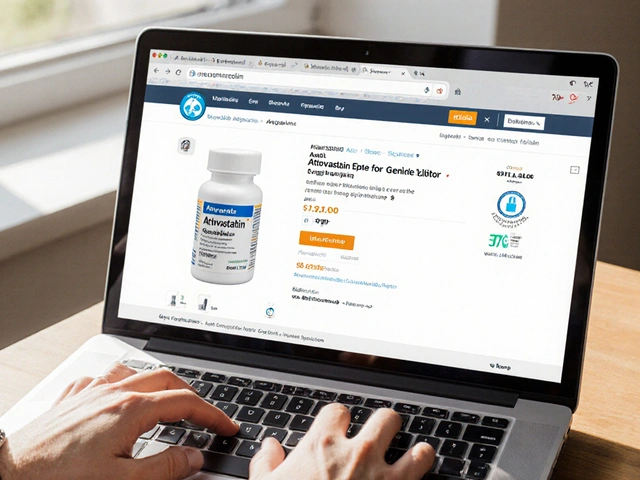PCOS Options: Practical Ways to Tackle Polycystic Ovary Syndrome
If you’ve been told you have PCOS, the first thing you’ll hear is that there’s no one‑size‑fits‑all cure. The good news is there are plenty of options that can ease symptoms, help you lose weight, and improve fertility. Below we break down the main routes you can take, from prescription meds to everyday habits you can start today.
Medical Treatments That Work
Doctors usually start with a few tried‑and‑true medicines. Birth‑control pills are the most common; they regulate periods and lower androgen levels, which can reduce acne and excess hair. If you’re trying to get pregnant, a drug called clomiphene (Clomid) can kick‑start ovulation. Metformin, originally for diabetes, often helps lower insulin spikes that many with PCOS experience, leading to better weight control and fewer cravings.
In some cases, doctors prescribe anti‑androgens like spironolactone to directly block the hormones that cause hirsutism and scalp hair loss. These pills are usually taken alongside birth‑control pills to avoid menstrual irregularities. Always discuss potential side effects—like dizziness or nausea—with your doctor, and never start a new drug without a prescription.
Lifestyle & Natural Ways to Support Your Body
While meds can do a lot, lifestyle tweaks often give you the biggest bang for your buck. Aim for a low‑glycemic diet: choose whole grains, legumes, and plenty of non‑starchy veggies. This keeps blood sugar steady and cuts down insulin spikes that fuel PCOS symptoms.
Regular exercise matters, too. You don’t need to become a marathon runner—just 30 minutes of brisk walking, cycling, or strength training a few times a week can improve insulin sensitivity and help shed stubborn pounds. Even short interval training (HIIT) has shown promising results for hormone balance.
Supplements can add a boost. Inositol (particularly myo‑inositol) is a sugar alcohol that many women with PCOS find helps regulate periods and improve egg quality. Vitamin D deficiency is common in PCOS, so a daily 1,000‑2,000 IU supplement may be worth discussing with your doctor.
Stress management shouldn’t be overlooked. Chronic stress raises cortisol, which can worsen insulin resistance. Simple practices like meditation, yoga, or even a nightly walk can keep cortisol levels in check and improve mood.
Finally, keep track of your progress. A symptom journal—recording cycle dates, weight, mood, and any side effects—helps you and your provider see what’s working and where to adjust. Many apps let you log meals and activity, making it easier to spot patterns.
PCOS can feel overwhelming, but the right mix of medical help and daily habits can bring big improvements. Talk to your healthcare team about which options fit your goals, and start adding one or two lifestyle changes today. Small steps add up, and you’ll soon see a clearer path toward feeling better.

8 Alternatives to Clomid: What Works (and What to Watch Out For)
- By : Archer Hamilton
- Date : Apr 17 2025
Looking for something other than Clomid? This guide breaks down eight alternatives, showing you the pros, cons, and how they stack up. Whether you’re hoping for a natural route or want to explore other medications, you’ll get a straightforward look at what’s out there and what to expect. Save time, avoid surprises, and get the details you actually need before making a choice. Easy comparisons, honest talk, and zero hype. Perfect for anyone curious about their fertility options.





